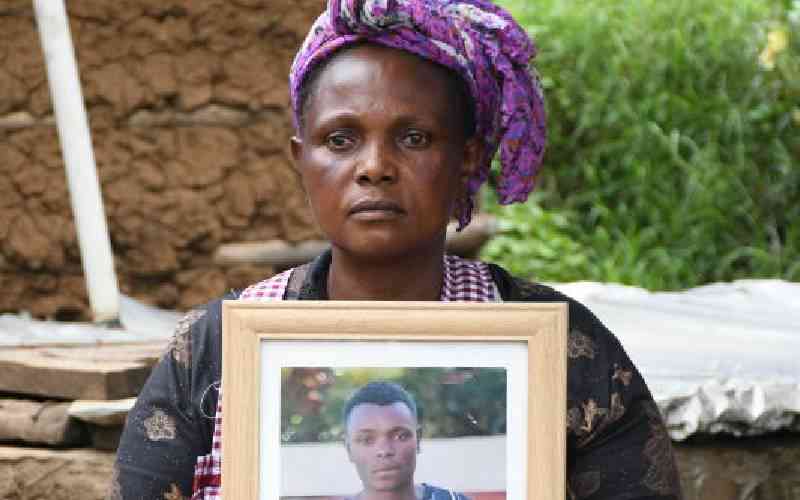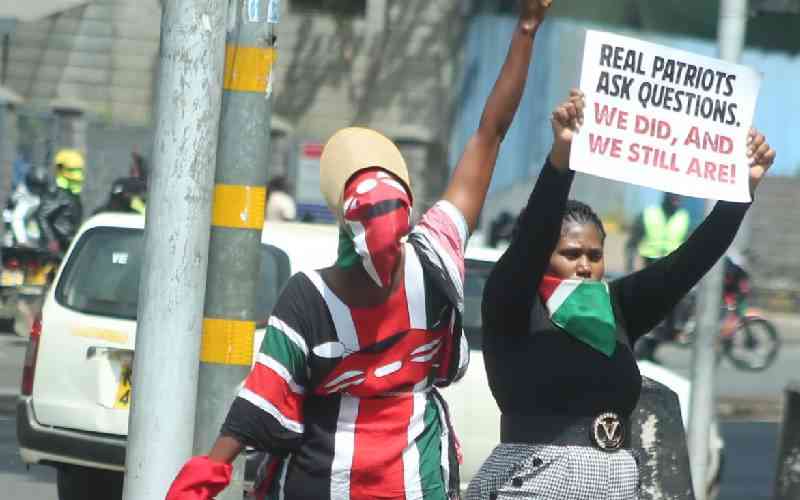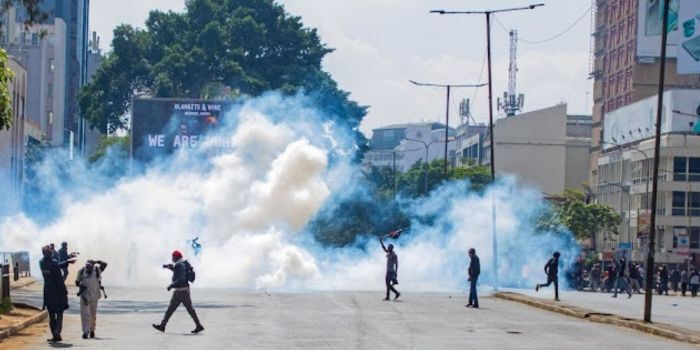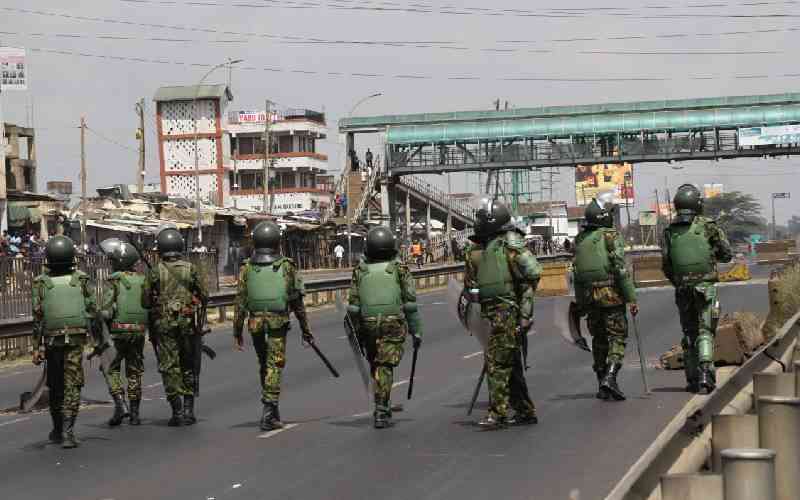Kenya's June 25th Anti-Finance Bill Protests and Government Response

Kenya is currently experiencing a profound period of social and political unrest, marked by widespread Gen Z-led protests that have escalated into a national crisis. These demonstrations, particularly those on June 25, 2025, and preceding ones in 2024, are rooted in deep public anger over surging living costs, alleged extrajudicial killings, and unchecked corruption. The human toll has been significant, with the Kenyan National Commission on Human Rights (KNCHR) reporting 19 deaths from gunshots, over 500 injuries among protesters, bystanders, and police officers, and at least six incidents of rape and sexual assault.
The government's response has been met with severe criticism. Interior Cabinet Secretary Kipchumba Murkomen initially stated his role was primarily policy and that he could not take responsibility for police killings. However, he later adopted a more aggressive stance, asserting that police have a "license to kill" and should use lethal force against demonstrators, famously declaring that guns "are not toys." Following the torching of the Kikuyu Law Courts and other government facilities during the June 25 protests, Murkomen issued explicit "shoot on sight" orders for anyone attacking a police station, although he later attempted to clarify these statements, claiming they were taken out of context and meant only to ensure officer safety.
Murkomen's directives have drawn strong condemnation, particularly from the Law Society of Kenya (LSK) President Faith Odhiambo, who labeled them reckless, illegal, and a potential catalyst for extrajudicial killings. The LSK unequivocally warned the National Police Service against complying with such "ultra vires, illegal, and unconstitutional" orders, emphasizing that any unjustified aggression or disproportionate use of force would be deemed a premeditated crime. Critics have also highlighted the contradiction between Murkomen's shifting positions and his labeling of the protests as an "attempted coup" and "economic sabotage."
In response to the escalating violence and concerns over police conduct, the High Court in Nairobi intervened. On Friday, June 28, 2025, Justice Bahati Mwamuye issued conservatory orders, restraining the police from using teargas or water cannons on protesters who have sought refuge in closed places, churches, hospitals, vehicles, or areas with limited ventilation. This injunction was issued in a case filed by the Kenya Human Rights Commission (KHRC) against the Inspector General of Police and the Attorney General. KHRC lawyers, including Schola Munyao and director Davis Malombe, presented evidence of police hurling teargas canisters and firing live bullets towards medical units near Nairobi and Kenyatta National Hospitals, and even into sacred spaces like the All Saints’ Cathedral, violating established laws and humanitarian principles concerning protected zones during civil unrest.
The legal framework governing police use of force, enshrined in Section 1 Part A of the Sixth Schedule of the National Police Service Act 2011 and the Constitution of Kenya 2010, mandates that non-violent means should always be attempted first. Force must be proportional to the objective, and lethal force is permissible only to save or protect life, or in self-defense against imminent threats. Officers are also required to give clear warnings before using firearms, with strict reporting protocols for any use of force, especially those resulting in death or serious injury, which must be reported to the Independent Police Oversight Authority (IPOA). Human rights groups continue to express concern over police brutality and the apparent disregard for these stipulated guidelines.
The protests have also been marred by significant property destruction. The Directorate of Criminal Investigations (DCI) arrested 24 suspects in connection with the torching and complete vandalization of the Kikuyu Law Courts, Kikuyu Sub-County offices, and other government facilities, including vehicles and tuktuks. Chief Justice Martha Koome condemned the attacks on courts as an assault on the Constitution and a severe impediment to justice delivery. Separately, 11 youths were charged at the Gichugu Law Courts with malicious damage to property belonging to Kutus Police Station and a private vehicle, while 25 more faced charges of unlawful assembly at the Kerugoya Law Courts. These arrests and charges have fueled concerns among rights groups about the growing criminalization of dissent.
Former Deputy President Rigathi Gachagua has vehemently denied allegations of funding or orchestrating the June 25 protests. In a candid interview, Gachagua stated he deliberately stayed home, respecting the Gen Z movement's request for politicians and senior leaders to keep away from their cause. He praised the youth-led movement as leaderless, non-partisan, non-tribal, and issue-driven, characterizing it as a patriotic civic effort to steer the country in the right direction. Gachagua maintained that his support for the youth is moral, not financial or organizational.
Gachagua went further, accusing the state of complicity in the violence, claiming that "goons" who infiltrated the protests were sponsored by the state and protected by police, who allegedly watched or even escorted them during looting. He questioned why no "goons" seen on camera were arrested, suggesting that doing so would expose their true sponsors. He asserted that these acts of chaos, which he claimed targeted businesses in the Mount Kenya region, were part of a scheme to turn voters against him and other popular regional leaders. Gachagua also revealed a personal rift with President William Ruto, stemming from the 2024 protests, where he disagreed with Ruto's labeling of protesters as criminals and urged him to reconsider the Finance Bill 2024. He advised President Ruto to listen to Kenyans and suggested he resign with dignity or face being voted out in 2027.
The unfolding crisis underscores deep-seated economic desperation, failing public services, high unemployment, and a pervasive public confidence deficit in governance. The deliberate disruption of live media broadcasts by the Communications Authority, despite previous court rulings, further intensified public suspicion and fueled conspiracy theories. The ongoing events, including unconfirmed reports of police advising families against postmortems for deceased protesters, highlight the urgent need for transparency and accountability. Observers emphasize that the current situation demands a political solution rather than a purely policing-based approach to address the fundamental grievances driving the nationwide protests.












